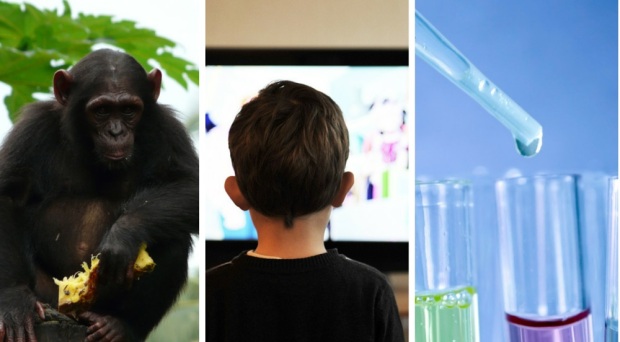
The opinion of trialists
Excuse me Trialist, what are your thoughts?
New research published in Trials explored the first-hand experiences that trialists face when conducting and reporting clinical trials. Ella Flemyng took a look at what they said and what can we do to tackle the challenges they face?
The power of pictures
12 months, 12 pictures: the best images from 2014 in BMC Evolutionary Biology
Several titles from the BMC Series took the opportunity in January to look back at the best of their research from 2014. The most popular of these highlights posts was from BMC Evolutionary Biology, which showcased 12 images from their research which caught their eye over the last 12 months.
Thoughts from early career researchers
Peer Review: what’s the point?
In her guest blog, Jillian Hart discussed some thoughts she had after attending Sense About Science’s workshop – Peer Review: The Nuts & Bolts at St Andrew’s University, Scotland.
Science communication: why PR is not a dirty word
Guest blogger Dr Bryony Graham discussed why she thinks researchers have a responsibility to help others understand their findings through communicating effectively about their research.
From epidemics to forgotten senses
- Planning a systematic review? Think protocols: Larissa Shamseer, PhD candidate in the Knowledge Synthesis Group at the University of Ottawa, and David Moher, co-Editor-in-Chief of Systematic Reviews, discussed the need to apply the same standards to systematic reviews as are seen in clinical trials, including registration and publication of protocols.
- The TRIPOD Statement: enabling the transparent reporting of prediction model studies: The TRIPOD statement, co-published in BMC Medicine, provides authors and editors with a 22-item checklist to ensure all key elements of a multivariable clinical prediction model can be transparently reported. In this guest blog, Gary Collins, co-author of the TRIPOD statement, and part of the TRIPOD steering committee, explained why these guidelines are needed and describes how this can be implemented.
- Innovations in diagnostics: The availability of good diagnostics is central to both the treatment and control of infectious diseases. Since parasitic and vector-borne diseases have the highest burden in low-income developing countries, the design of diagnostics for such diseases is complicated. In this BugBitten post, Vera Unwin discussed the features of an ideal diagnostic.
- What can chimpanzee tracking tell you about climate change?: New research in BMC Evolutionary Biology found that the most endangered chimpanzees may experience drastic habitat loss within five years due to climate change. Author Paul Sesink Clee told us more about the findings, and the process of carrying out his group’s research.
- Understanding the genetic bases of human preferences in mosquitoes: In this guest blog for BugBitten, Dr. Julien Pelletier discussed how mosquitoes are notorious for their remarkable ability to find suitable hosts to feed on.
- The Ebola Epidemic revisited – where are we in 2015?: Following from his guest post for GigaBlog in October on ‘Approaches and resources to slow the spread of infection’, Michael Dean from the Center of Cancer Research at the NIH used his data oriented approach to give an update of where the Ebola epidemic is.
- TV in the time of an epidemic: understanding individual social distancing behaviour: Quantifying the benefit of social distancing in a disease epidemic can be difficult, due to the unpredictable nature of individual behavioural responses. However, Veronica Wignall wrote about new research in BMC Infectious Diseases carried out at the University of California that has looked at an innovative solution: using home television viewing as a proxy for behaviour.
- The forgotten sense of taste: Guest blogger and editor of a new series in the journal Flavour, Ole G. Mouritsen looked at how further research from the natural sciences, human sciences, social sciences, as well as the arts, contribute new perspectives on taste and improve global health.
Comments